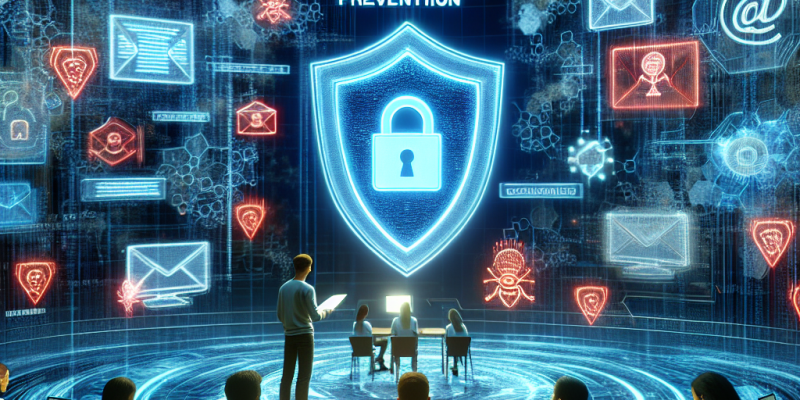The Role of Cybersecurity Education in Combating Phishing in 2025

In 2025, the world is more connected than ever. As technology advances, so do the methods used by cybercriminals. One of the most common threats today is phishing. Phishing attacks trick individuals into giving away their personal information, such as passwords and bank details. To combat this growing issue, cybersecurity education has become essential. This article explores how education plays a key role in preventing phishing attacks.
Understanding Phishing
Phishing is a technique used by cybercriminals to deceive people. They often send emails or messages that look like they come from a trusted source. These messages usually contain links to fake websites that appear real. When people enter their information on these sites, they unknowingly give their data to the attackers. In 2025, phishing attacks have become more sophisticated, making it crucial for people to recognize their signs.
Importance of Cybersecurity Education
-
Raising Awareness: The first step in fighting phishing is awareness. Cybersecurity education teaches individuals how to identify phishing attempts. This can include recognizing suspicious email addresses or noticing poor grammar in messages. Through workshops and online courses, people can learn what to look for and how to respond to potential threats.
-
Developing Critical Thinking Skills: Cybersecurity education encourages critical thinking. When individuals evaluate the legitimacy of requests for personal information, they become less likely to fall for scams. Training programs often use real-world examples to help learners develop these skills. By thinking critically, people can protect themselves and their organizations.
-
Using Technology Wisely: In 2025, many cybersecurity education programs emphasize the use of technology. People are taught about tools like password managers and two-factor authentication. They also learn how to check website security. Understanding these technologies empowers individuals to take control of their online security.
-
Promoting a Cybersecurity Culture: Education helps build a culture of cybersecurity within organizations. When employees are trained to recognize phishing attacks, they become the first line of defense. Companies that prioritize cybersecurity education are better equipped to protect their data. This shared knowledge can significantly reduce the risk of successful phishing attacks.
The Role of Schools and Organizations
Schools and organizations play a vital role in promoting cybersecurity education. Incorporating cybersecurity into school curriculums prepares students for a digital world. Workshops and seminars can be organized for employees, ensuring that everyone in the workplace understands the risks of phishing.
Moreover, public awareness campaigns can inform the general population about phishing threats. This information can be spread through social media, websites, and community events. The more people know about phishing, the safer they will be.
Conclusion
As phishing attacks become more advanced in 2025, cybersecurity education is critical in combating this threat. By raising awareness, developing critical thinking skills, and promoting a cybersecurity culture, education equips individuals with the tools they need to protect themselves online. Schools, organizations, and governments must work together to ensure everyone has access to this essential knowledge. In doing so, we can create a safer digital environment for all.














